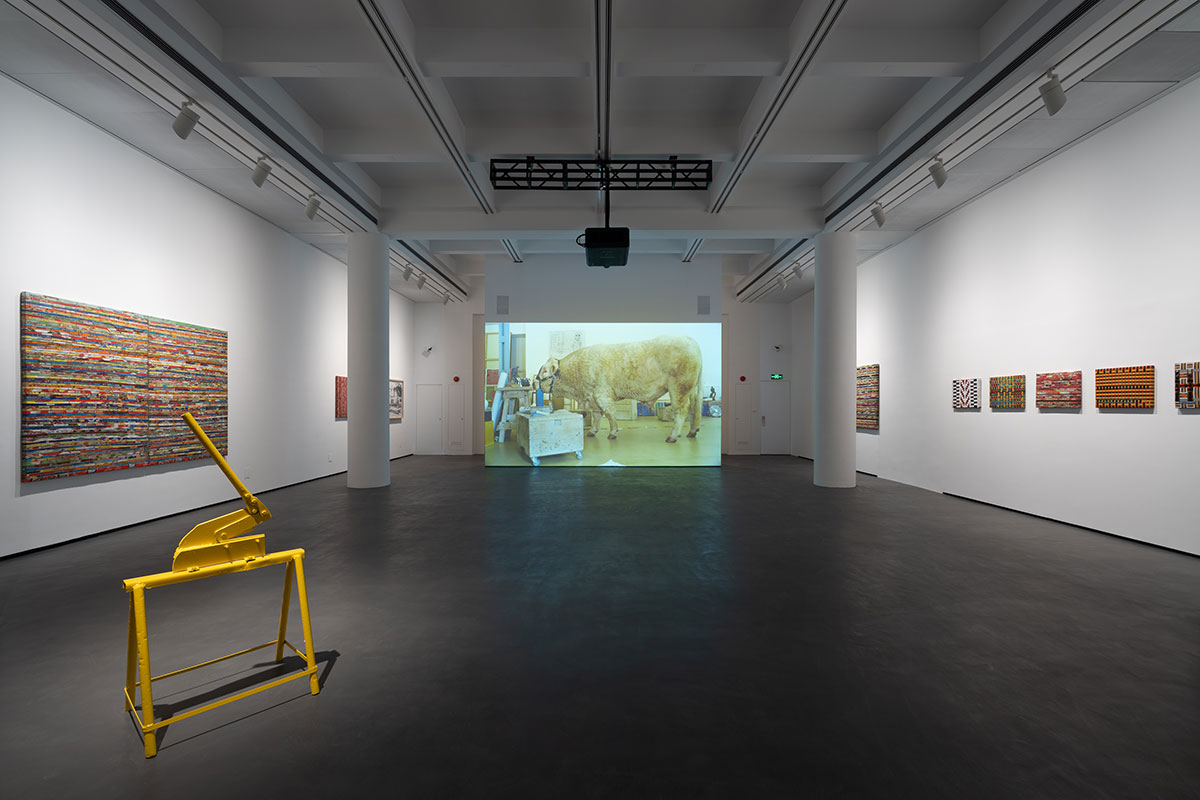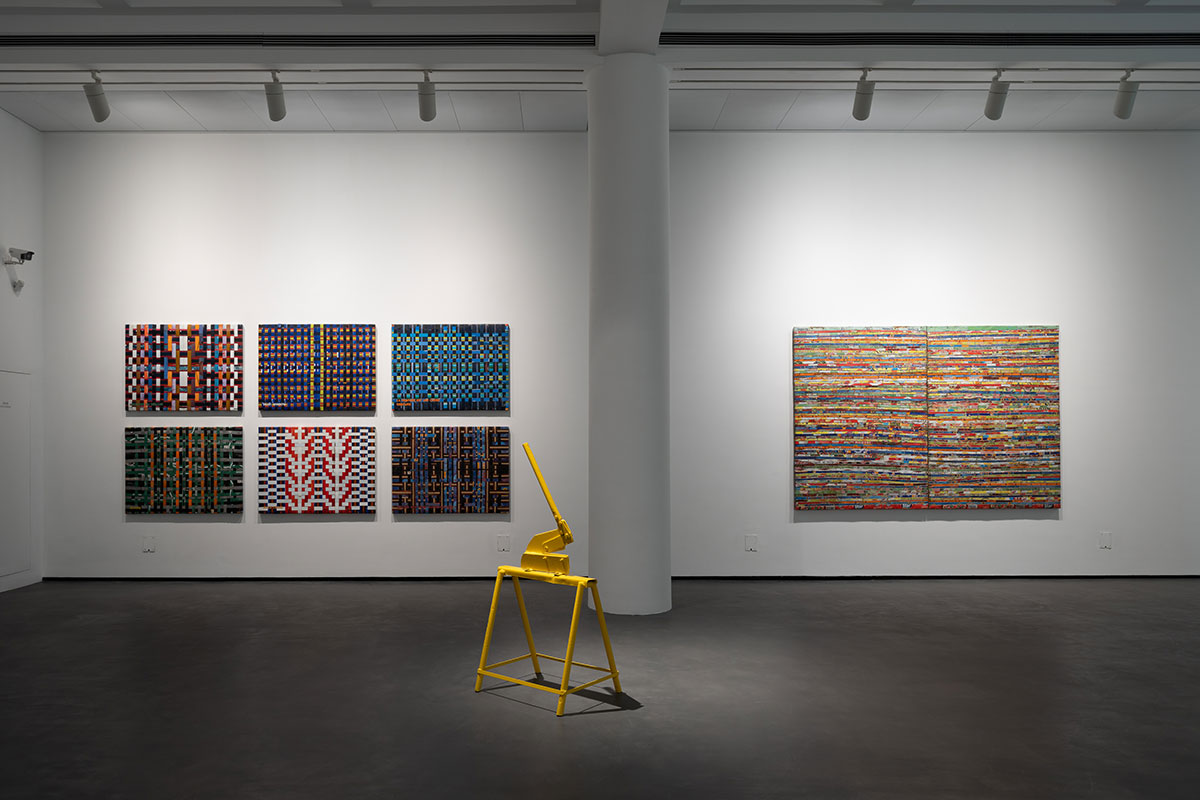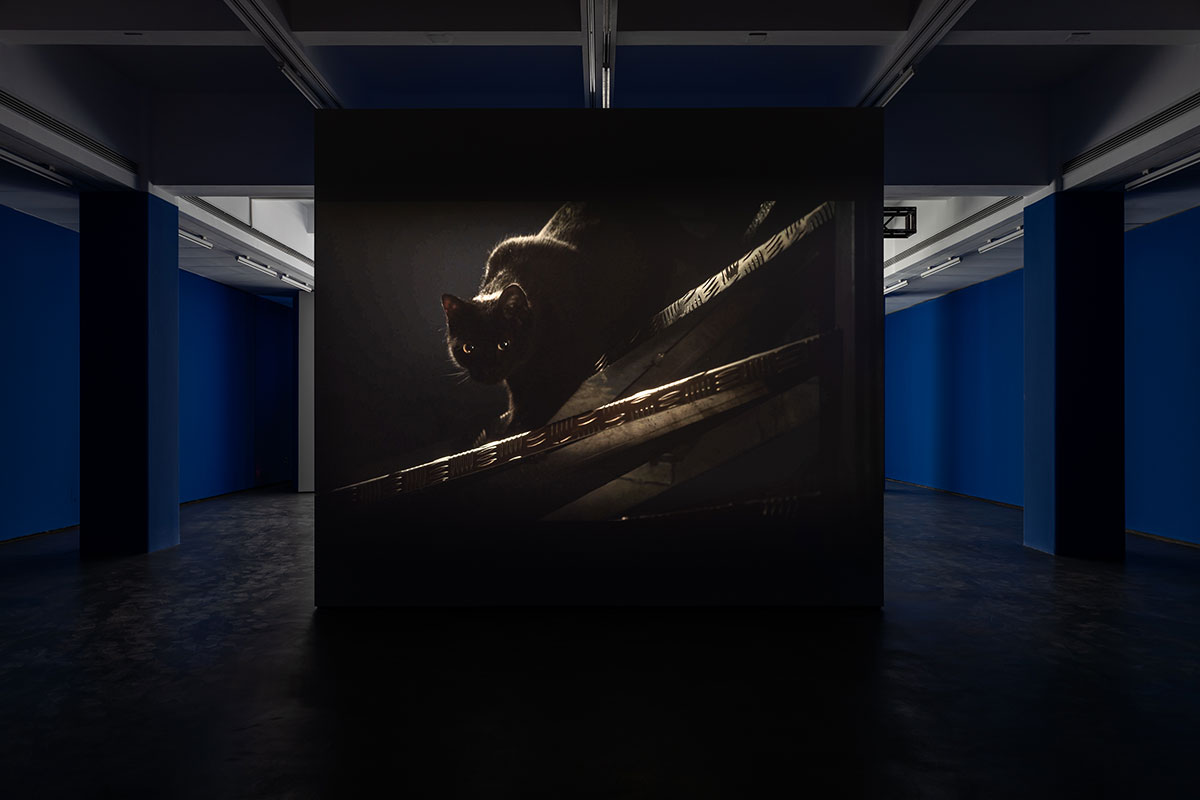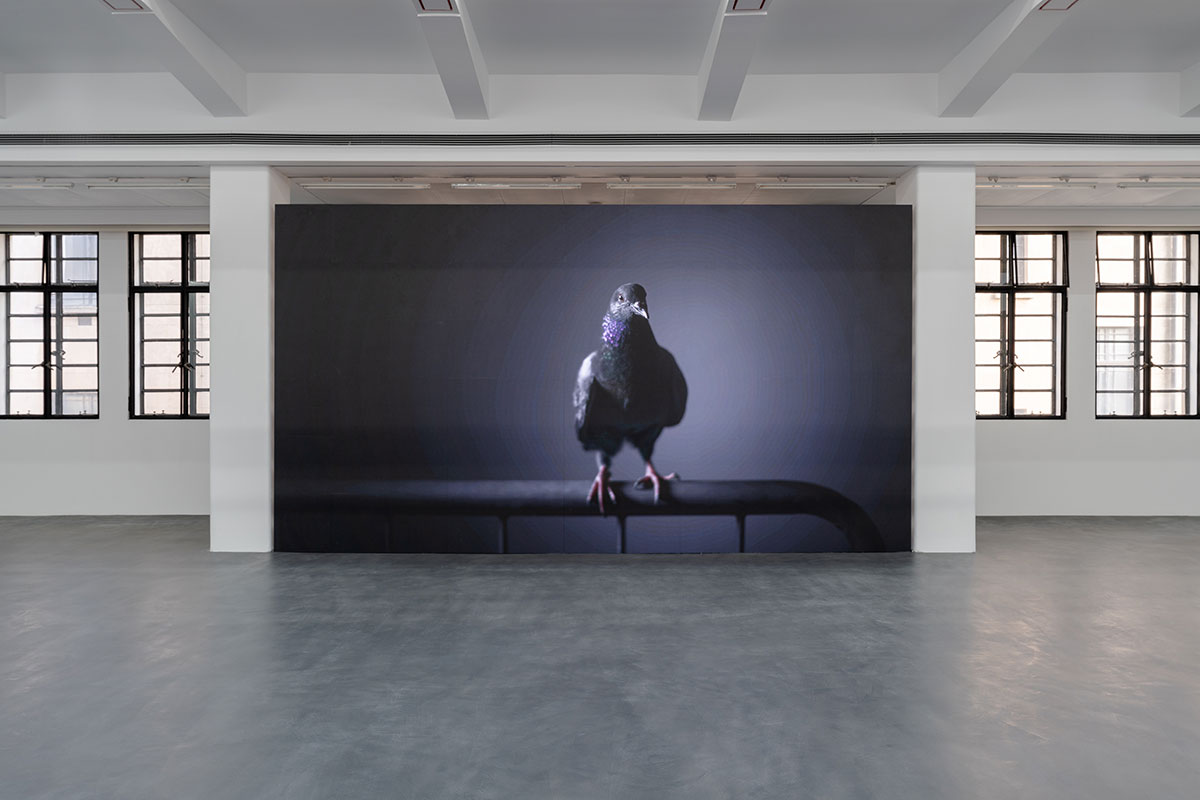PRESENTATION: Adel Abdessemed-An Imperial Message
 Fascinated by the relentless flow of images, Adel Abdessemed recycles the most powerful forms. He abandons the chronology to stage the dramas featuring collective mythology, to interpret the violence of men whether it is political, religious or moral. He became the chanter of the forgotten, the oppressed, the slaughtered animals, the migrants who entrust their lives to the waves. Like accidents, the works gathered in the exhibition, sharpen our emotional sensitivity to violence. They affect our vulnerability by deconstructing our solid and reliable preconceived worldviews. Decontextualized from their historical context, they nevertheless remain as common places of a shared Western visual culture while it is doubted.
Fascinated by the relentless flow of images, Adel Abdessemed recycles the most powerful forms. He abandons the chronology to stage the dramas featuring collective mythology, to interpret the violence of men whether it is political, religious or moral. He became the chanter of the forgotten, the oppressed, the slaughtered animals, the migrants who entrust their lives to the waves. Like accidents, the works gathered in the exhibition, sharpen our emotional sensitivity to violence. They affect our vulnerability by deconstructing our solid and reliable preconceived worldviews. Decontextualized from their historical context, they nevertheless remain as common places of a shared Western visual culture while it is doubted.
By Dimitris Lempesis
Photo: Rockbund Art Museum Archive
Born in Constantine, Algeria, Adel Abdessemed now lives and works in Paris, France. He studied in Batna and Algiers before graduating from the École nationale des Beaux-Arts de Lyon in 1998. His art, which spans the media of drawing, video, sculpture, and monumental installation, is one that asks the viewer to confront and examine the violence which pervades the world we inhabit. “Adel Abdessemed tells us visually, with maturity and the necessary violence, that his proud and upright cultural universe is an alternative to the current trend of standardization.” Artist Jannis Kounellis wrote these words in 1999 on the occasion of Abdessemed’s participation in the Biennial of Young Artists from Europe and the Mediterranean in Rome. Over twenty years later, Abdessemed continues to create works which cut through the media-induced anesthesia of contemporary life. Adel Abdessemed probes the wounds of our present. His art, which spans the media of drawing, video, sculpture, poetry, sound, and installation, unfolds as a powerful experience of opposing materials, emotions, and concepts. Titled “An Imperial Message” after Franz Kafka’s short parable, the exhibition features around 40 pieces of work by the artist, among which more than 10 are newly created. Collectively, the works on view carve out an introspective journey, inviting audience to reflect upon the violence pervading the contemporary world we inhabit and confront our own profound feelings, fears, and desires. Adel Abdessemed’s art stems from, but it is not just plain narratives of trauma. Underlying the depiction of trauma lies the power of life. The exhibition starts from a newly-produced series of large charcoal drawings. Entitled Air, the series features human body figures in various postures floating in the void of paper, capturing the various moments of falling. Taking the steps down, the music follows. The piece pervading the fourth and fifth floors of Rockbund Art Museum, is titled “The Homing Pigeon”. It was composed by Franz Schubert at the end of his life and published posthumously. Referring to this piece, Abdessemed’s video shows a pigeon standing quietly on a metallic barrier in front of a dark background. A nine-meter-long painting entitled “Alger Alger” is opposite of the video. Black lines and patterns are hidden in between the extensive range of reds. They are the musical staves. In fact, “Alger Alger” is an homage to the vibrant popular song of the same name by Lili Boniche. The lyrics tell the story of an exiled person missing and remembering the city and his family. It also mirrors the artist’s departure from and deep attachment to his hometown of Algiers, where influential poets, musicians, and resistants were (and still are) very active and vigorous. A video work, “Un Chat noir passe entre nous”, welcomes visitors to the third floor. Echoing the homing pigeon and the wandering black cat, a video on the second floor, “Politics of the Studio, Nelson”, shows a massive white bull standing in the artist’s studio. The bull’s eyes are alert as it tries to find a position in an unfamiliar space. The same floor also presents the artist’s representative large-scale works, including sculptural work “Eran las cinco en todos los relojes” and “Cocorico,” an ongoing painting series began in 2016. The artist flattens and reassembles metal cans discarded in the ocean, landfills, and streets to form specific colors and patterns.
Photo: Adel Abdessemed, Cocorico painting, La Terra dei fuochi, 2017–2020, Recycled printed metal, 85 × 115 × 3.5 cm, Courtesy of the artist and Tang Contemporary Art, Hong Kong
Info: Curator: Larys Frogier, Rockbund Art Museum, 20 Huqiu Road, Huangpu District, Shanghai, China, Duration: 16/7-11/9/2022, Days & Hours: Tue-Sun 10:00-18:00, www.rockbundartmuseum.org/
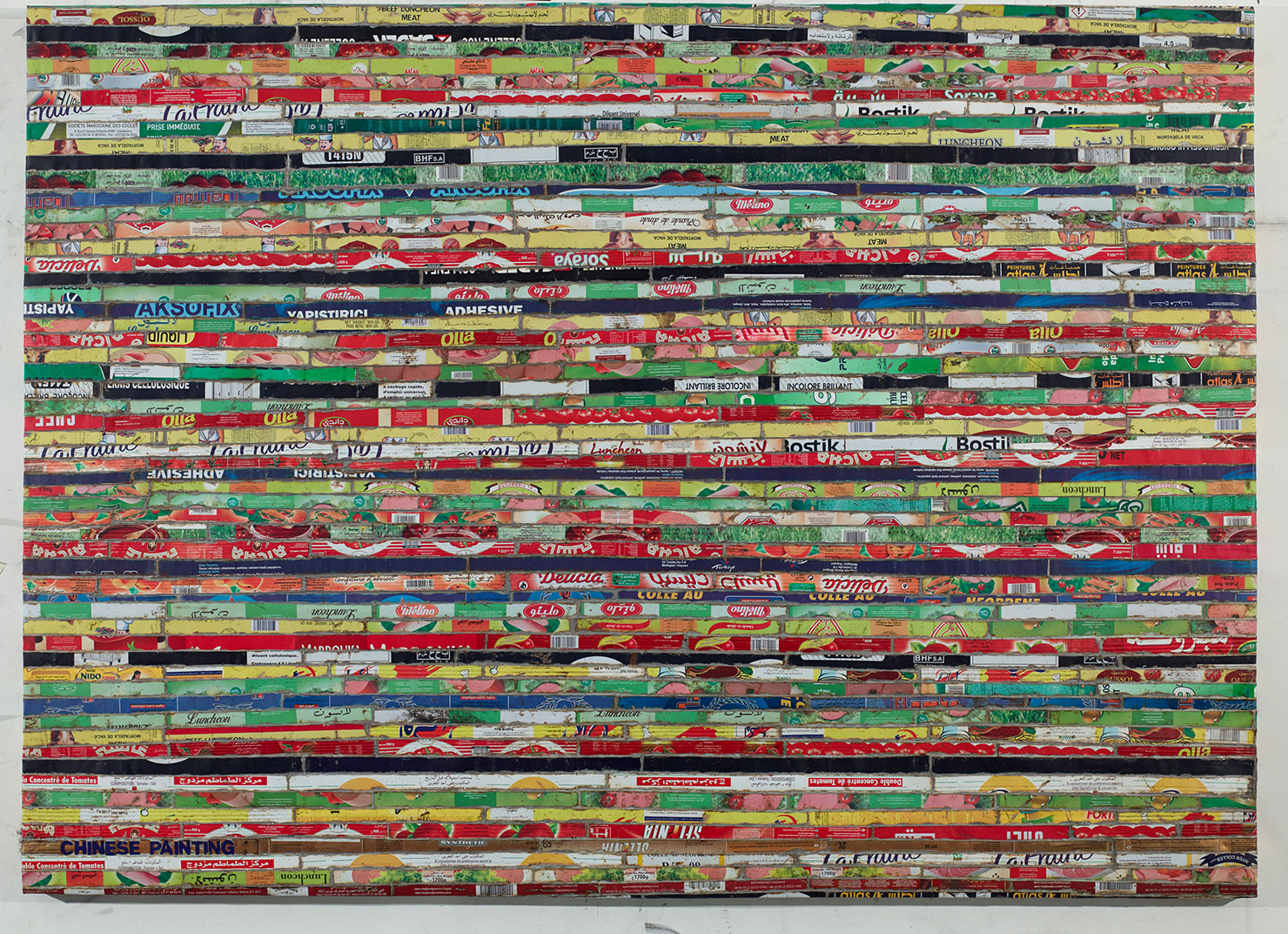

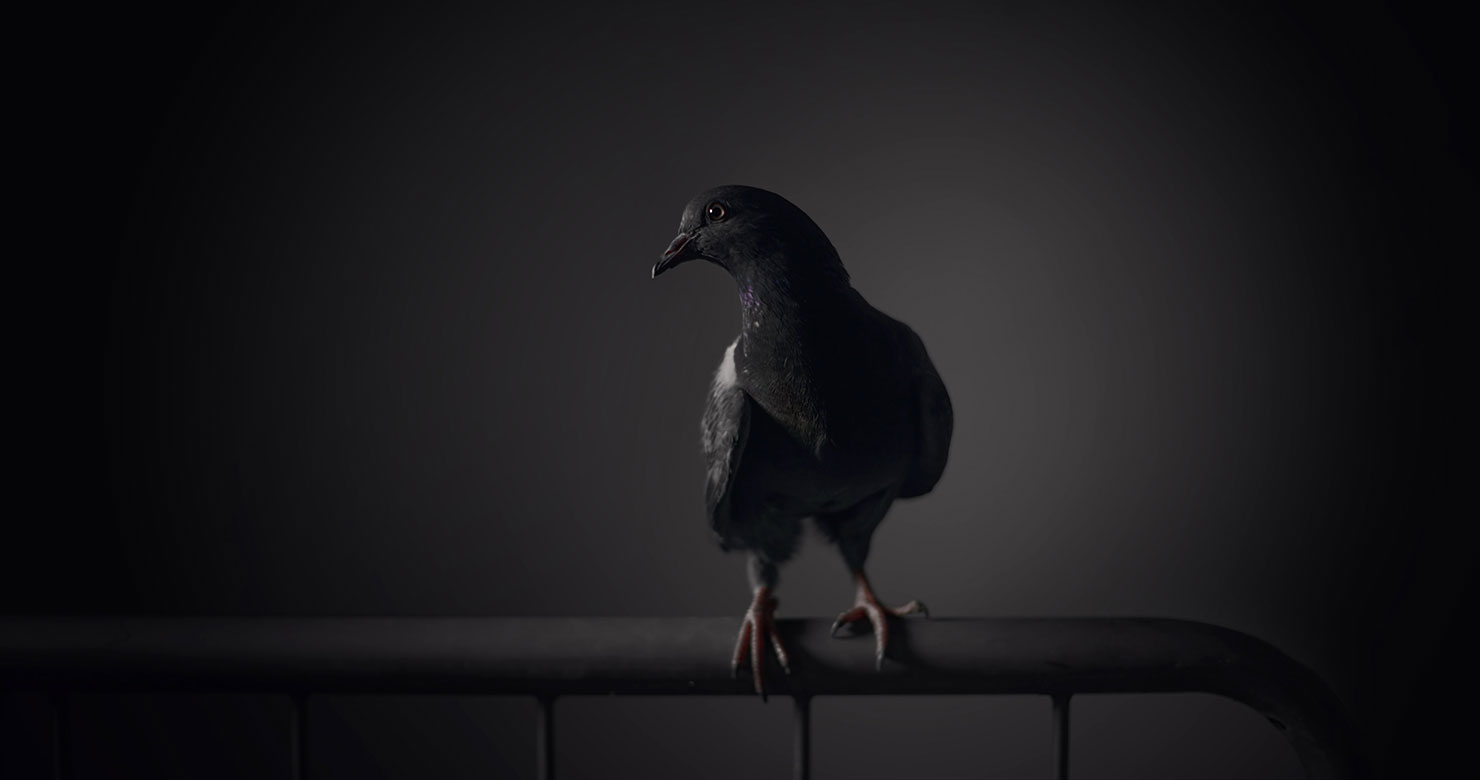

Right: Adel Abdessemed, Air, 2021, Charcoal and pastel on paper, 230 × 162 cm, Courtesy of the artist
